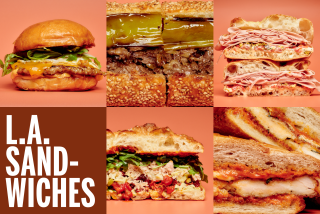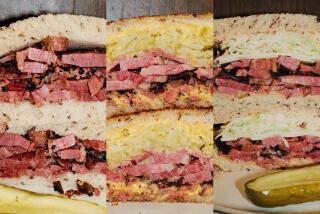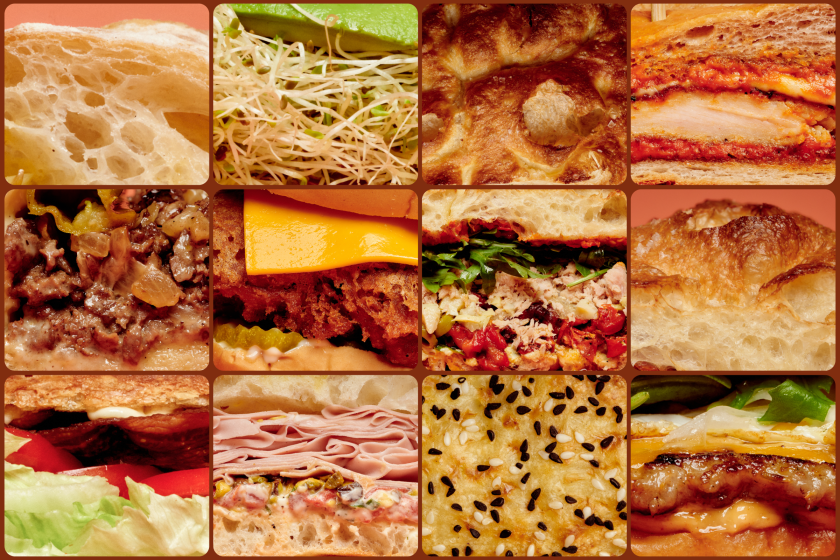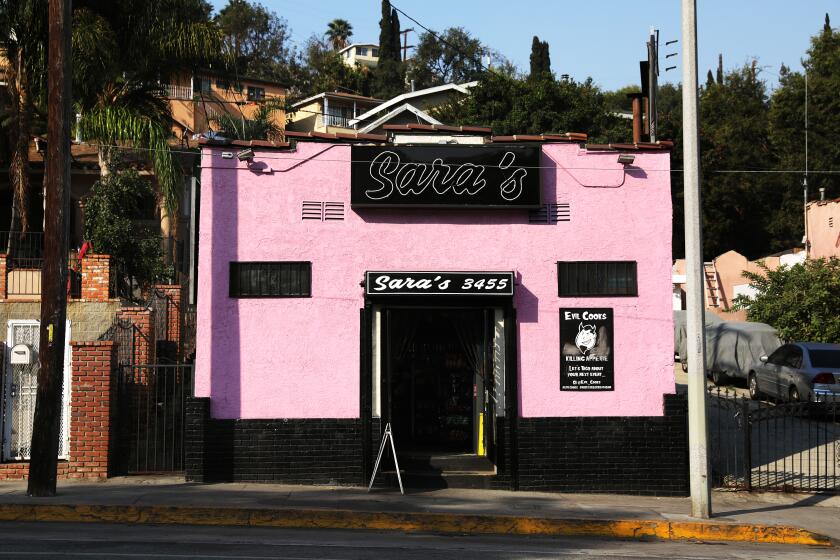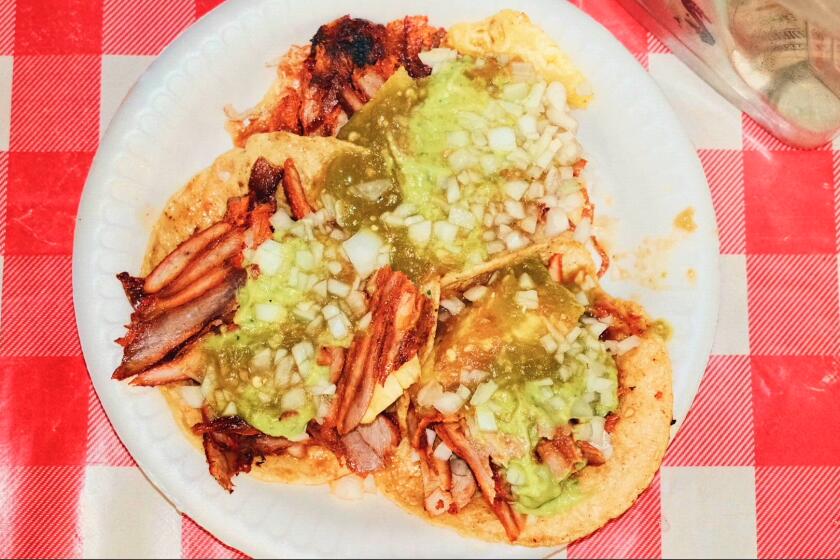postcard-from-l-a: A family in a pickle on a Saturday in the kitchen
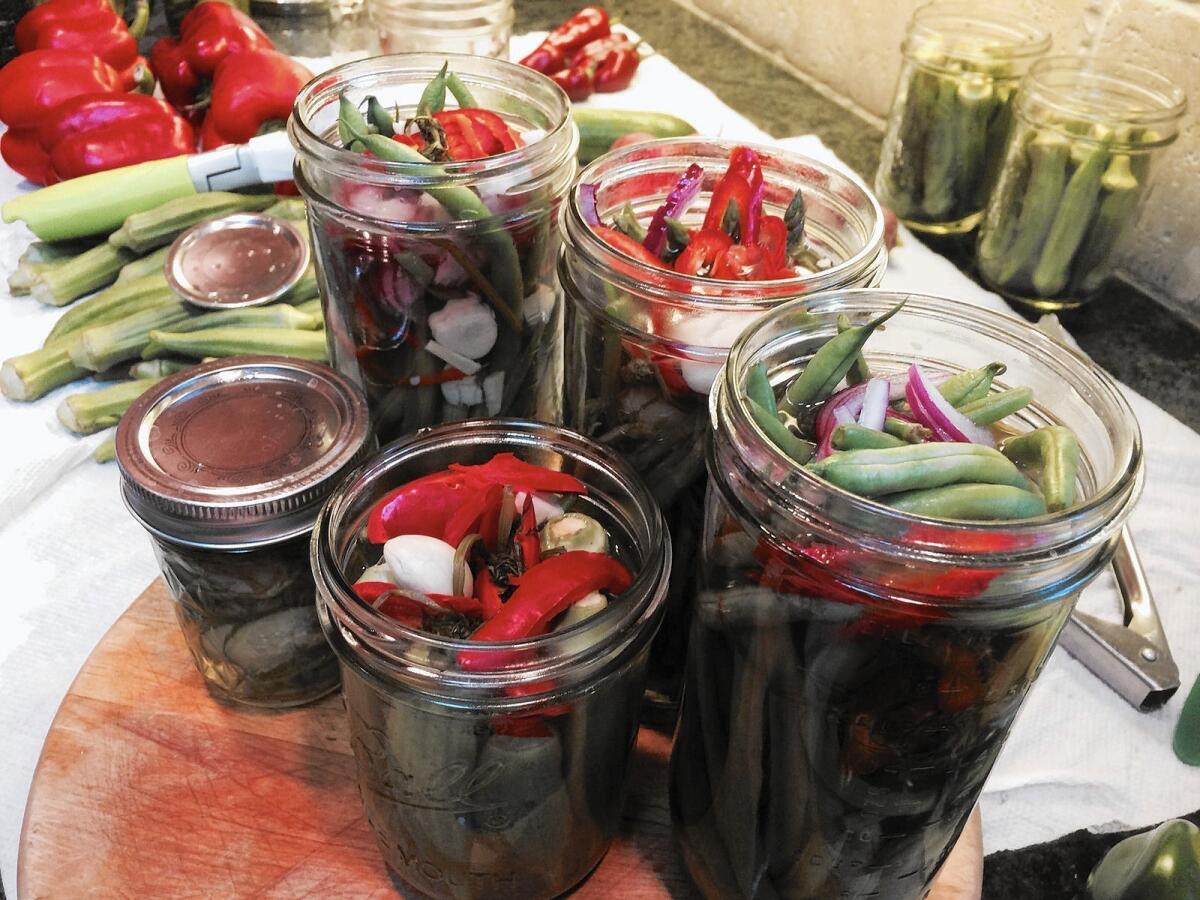
Our house is really more of a hutch than a house. In the overheated L.A. market, it probably wouldn’t even fetch $1 million. Not exactly a showplace.
But we do the best we can, my wife and I. We’ve decorated the house with children, some of whom have aged out and moved on. Yet they frequently return to our ‘50s-era hutch. I spotted the younger one the other day scurrying from the house to her car with an armful of our toilet paper. Had her head on a swivel, like a looter leaving an appliance store. I threw a rock at her. Missed high and wide.
Yes, our children still plunder us in odd ways. The two daughters stopped by a Saturday ago, the harvest moon blood red, as if in warning. I love that mid-October moon, even as it indicates mischief and petty larcenies.
The girls came home to pickle. That’s right, as in those pickled peppers Peter Piper picked. Onions, asparagus, okra too. Within an hour, the whole house smelled of coriander and vinegar. It almost threatened to replace the usual aroma of Posh’s disgusting racetrack cigars.
Now, a loud and busy kitchen is the sign of a healthy house, but don’t rush to conclusions. There was lots of yelling, which can be healthy — you have to get that stuff out. And the cymbal crash of pot lids. Amid it all, the lovely and patient older daughter somehow proclaimed herself the Queen of All Pickling. In short, the Pickle Queen.
In such situations, the Pickle Queen has ultimate authority — even in her parents’ kitchen. She can order people to boil liquids, chop carrots or run to Starbucks for her beloved caffè Americano. Having the Pickle Queen in the house is the equivalent of martial law. Only the firearms are missing.
I’d rather face a muzzle of a gun than a mouthy daughter, but I don’t always get that choice. Didn’t even know about this pickling fest till the night before, when Posh prepared me with the words: “They’re coming tomorrow to pickle, let me warn you.” It was a creepy, skin-tingling moment.
So this farm-to-table craze has come to this, our daughters in the kitchen arguing with each other over asparagus. When she gets bossy, the older daughter has the kind of voice that can melt the membranes in your cellphone, turning those little seals around the connection ports to a thin, waxy film.
“CAN SOMEBODY SLIP HER A XANAX?” her baby sister asks after the opening tirade.
Honestly, it makes me proud to hear the older daughter bark orders. Barking is a family trait — like blue eyes or hay fever.
“You want to blanch some beans?” the Pickle Queen asks.
“Nope,” I say.
“The pot is right over there,” she says.
Normally, I’m not much of a blancher, but just for kicks I blanch some green beans. (Most of what I know about cooking I learned from watching Woody Allen chase a live lobster around the kitchen: “Talk to him! You speak shellfish!”)
My little Annie Halls aren’t exactly farm girls. I’m not sure my daughters have even seen a farm. Far as they know, beef and chicken are raised in the backs of trendy restaurants with unpronounceable names. They think lamb chops are produced with 3-D printers.
No, these two aren’t exactly pickling material. Yet here they are, in our kitchen on a fine autumn Saturday. Boiling vats. Mounds of vegetables. Harvest moons.
“I’ve always wanted to pickle,” the older one explains, a rather slipshod excuse for destroying a $2,000 Viking range.
This is their first pickling effort, and I have to say it amuses and pleases me. I realized in the course of it that I don’t talk to my adult daughters like adults. I still talk to them as a combo of children and adults. Chults.
The way I address my daughters is distinctive even from the way I speak to my two sons. I address my daughters with a mix of firmness and gentleness. With the boys, there is a more jocular toughness.
Tonally, it’s the difference between Mozart and Mötley Crüe.
With the girls, there is almost a dialect, a paternal patois. I couldn’t NOT talk to them this way; it would be like trying to hide a lisp or an accent.
You know, I think you hear your mother’s voice in your head your entire life, even after she’s gone. With dads, I think it’s the demeanor that lingers most.
In the end, I don’t think this father-speak is a burden. If it bothers them, my daughters don’t complain.
And they keep coming back — loud, messy, larcenous. Thank gawd, they keep coming back.
Twitter: @erskinetimes
More to Read
Eat your way across L.A.
Get our weekly Tasting Notes newsletter for reviews, news and more.
You may occasionally receive promotional content from the Los Angeles Times.
